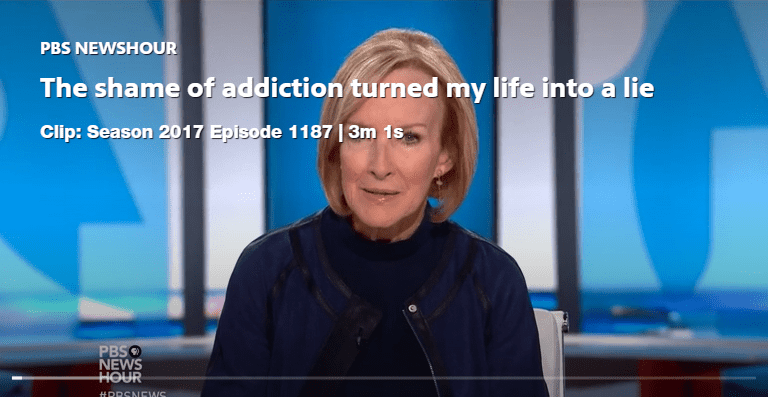September was National Recovery Month. We observed Mental Illness Awareness Week at the beginning of October. Yesterday, we recognized World Mental Health Day. These three observances have some overall objectives, many of which overlap: Raising awareness about mental health conditions, encouraging treatment, and ending stigma.
We can talk about a mental illness like depression or have a conversation about addiction; however, stigma continues as a factor that prevents individuals from seeking treatment. We have discussed the topic of shame in the past, at length. Guilt doesn’t empower people to seek treatment; it causes them to hide their struggles. When people can’t talk about their issues, then their disease festers.
Addiction is a family disease, which you can interpret in different ways. On the one hand, a loved one’s addiction ripples through the entire family, leaving nothing but wreckage in its wake. Because of this fact, when the whole family is involved in the recovery process positive outcomes are more likely. Additionally, you can also take “family disease” to mean that alcohol and substance use disorders run in the family. It’s quite common for multiple family members to have similar histories.
Another element to the family disease concept worth contemplating is — the shame that mothers and fathers feel for a son or daughter’s condition. It’s not uncommon for parents to deny the existence of a problem. Even when the signs all point to one thing, substance use disorder. In such instances, parents will ignore the indications of a problem, so they won’t have to face reality. Even though controlling a loved one’s condition is nearly impossible, parents can’t help but feel like they failed at parenting. This form of shame can have deadly consequences.
We Are Here For You
Let Us Help You Heal
Our detoxification experience is second to none.
Learn how we can help by speaking with one of our Treatment Advisors today.
Letting Shame Stand In The Way of Recovery
Human beings place a lot of emphasis on maintaining appearances or keeping up a facade that everything is OK. Ignoring the realities of life can, in a sense, become habit-forming. We care about what others think, or about what we think they might think.
Living authentically with family members and friends is hard, but it takes even more of an effort to disguise our reality from others. One’s attempts to do so can have a dangerously caustic effect on not only him or herself but their family, too. Given that there are millions of people with alcohol and substance use disorders in the U.S., we know there are countless parents that understand what it feels like to downplay a child’s addiction. These parents realize how shame kept them from seeking help for a family member.
A couple of years ago a mother decided to share her thoughts on the subjects of shame, stigma, and addiction. She talked about how they pertained to her own life and that of her child who became addicted to prescription opioids; shame kept her from seeing the big picture.
Our Treatment Services Include
Everything’s Real
S.O.B.E.R., co-authored by Anita Baglaneas Devlin (mother), Michael Devlin Jr. (son), is about facing reality. Mrs. Baglaneas writes how the shame she felt about what people might think kept her from helping her son find recovery. When her son finally got the help he needed, Anita realized that she too required assistance (i.e., family disease). Utilizing the family program at her son’s treatment center, Anita found that she needed to get healthy and learn how to “let go.”
“Addiction is an octopus,” says Anita. “Whose tentacles wrap tightly around us all choking the life out of everyone in its way. The whole family needs to recover together.”
Ready To Begin Your Treatment?
Let Us Help Your Family Heal
Our family therapy program is second to none.
Learn how we can help your family by calling a Treatment Advisor now.
PBS NEWSHOUR has a series titled, “America Addicted.” A recent segment featured Anita Baglaneas. Since finding sobriety, Anita travels around the country sharing her thoughts on this family disease. Please take a moment to watch and listen below:
If you are having trouble watching, please click here.
Our Family Program will help restore a healthy dynamic at home and assist you in creating a long-term recovery plan for everyone concerned. Please contact us today.
Begin Healing Now!
Have A Call With One Of Our Treatment Advisors
Don’t Suffer Any Longer
Saving The Family From The Clutches of Addiction
At Immersion Recovery Center, we fully understand the difficulty of recognizing that your loved one has an incurable mental health condition. The feelings that accompany such a realization can be daunting. However, with your help and our assistance, their recovery is possible, and you can heal as well.
Our Family Program will help restore a healthy dynamic at home and assist you in creating a long-term recovery plan for everyone concerned. Please contact us today.
Reviewed for accuracy by :
Susan Shirley
LMHC
Serving as the Inpatient Clinical Director at Immersion Recovery Center, Susan will work directly with staff members, clients, and family members to ensure the clinical program remains as effective and individualized as possible. Susan is no stranger to the fields of behavioral health and addiction. She has over 25 years of experience, working in an inpatient setting, an outpatient setting, acute stabilization and nearly all other settings in the realm of addiction recovery.























